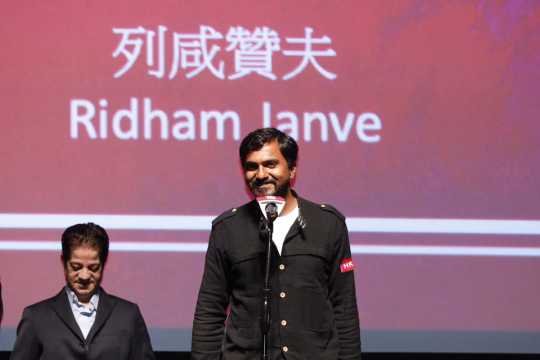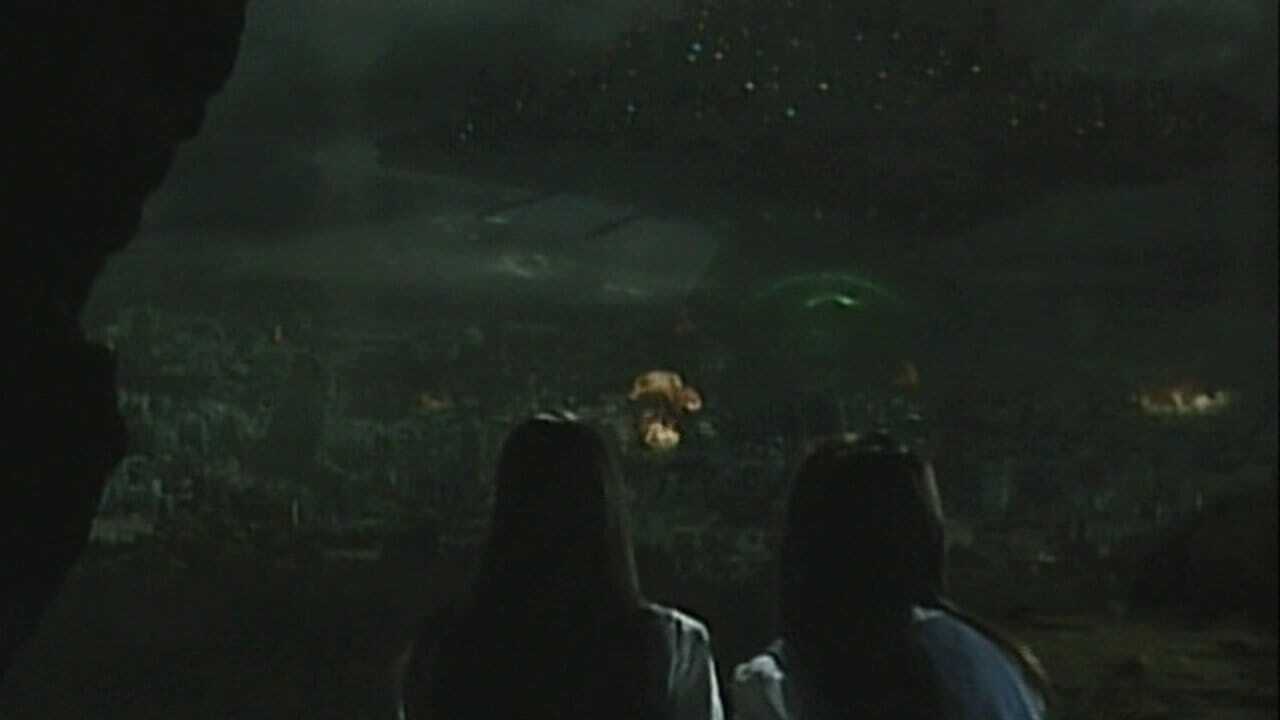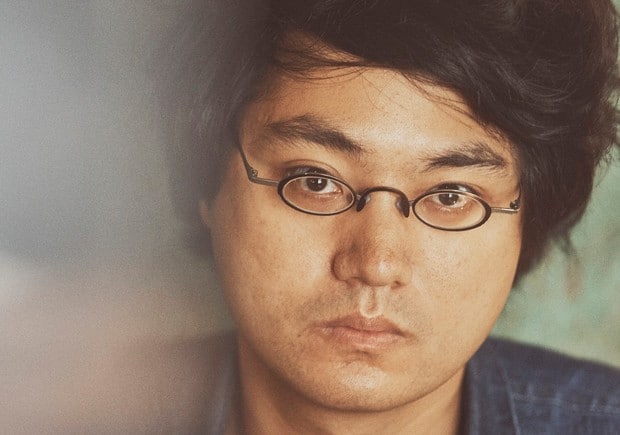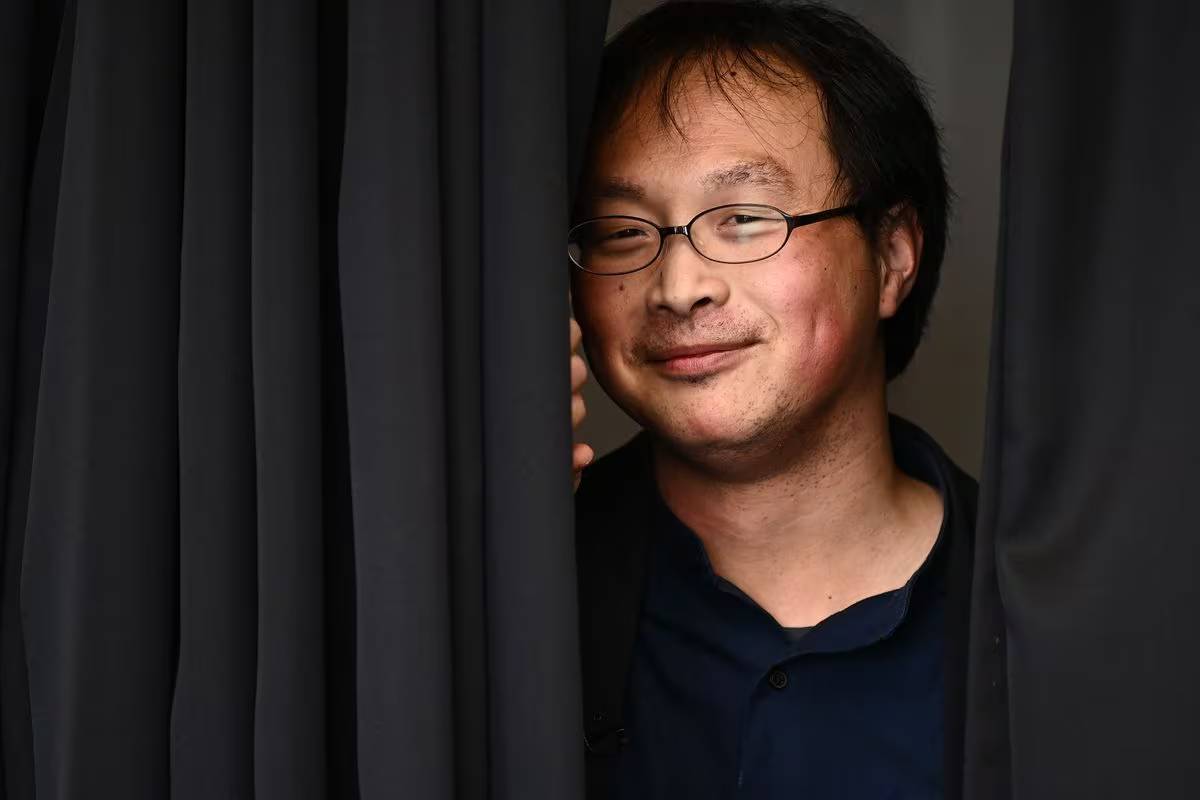Ridham Janve directed “The Gold-Laden Sheep & the Sacred Mountain” which he co-wrote with Akshay Singh. It his first full-length feature, having previously directed short documentaries and fiction films, such as “Kanche aur postcard” (2013). Janve is a graduate of India's National Institute of Design.
On the occasion of “The Gold-Laden Sheep & the Sacred Mountain” screening at the 43rd Hong Kong International Film Festival where it won the FIPRESCI International Critics award, we ask him about what inspired him to become a filmmaker, where the idea for “The Gold-Laden Sheep & the Sacred Mountain” came from, what it was like working with an amateur cast, the meaning behind the film, and his plans for the future.

The Gold-Laden sheep previously won the Silver Gateway of India at the Mumbai Film Festival, how surprised were you to win that accolade and how do you think it will shape your career in the future?
It was indeed a pleasant surprise to win that award. When we were making the film, we were extremely wary of being influenced by what the audiences, film festivals, distributors look for, winning awards was not an expectation at all. But of course, awards and appreciation serve as a great fuel for an artist. I feel more courageous to continue making the films I would like to make in the way I think they should be made. I hope that this appreciation will bring me more opportunities to create. It's difficult for most producers to bet their money on unusual ideas, especially by new directors. I feel these awards bring some sort of a legitimacy and open new doors.
I understand “The Gold-Laden Sheep and the Sacred Mountain” was your directorial debut. When did you first realise you wanted to be a filmmaker?
I studied communication design at the National Institute of Design, Ahmedabad where I got first introduced to the world of cinema. I was blown away by the different kinds of films I watched there. Each film was a new discovery for me. As a response, I also started my own experimentation with the medium of film and somewhere in that process I realised that I want to become a filmmaker.

Can you tell us how the idea for the The Gold-Laden Sheep was born? Did you start with a firm idea of what you wanted, or did the film evolve over time from an initial concept?
This film comes from my experiences of the mountains and a strong desire to capture those landscapes and their stories in the film form. My co-writer on the film, Akshay Singh and I had spent significant time in that region (mostly working on other writing projects), during which we came across many stories, ideas, and observations of the mountain culture, the extraordinary lives of Gaddi shepherds and the many unsolved mysteries and myths associated with those mountains. It was during a trek when we saw the possibility of a film and started shaping it up in our minds. The intent was firm, but we always wanted to keep the storyline and the filming process flexible. We did not write a hard script for the film but only a 15-page treatment note, which was a mix of some definite story pointers and mostly notes for ourselves. Given the production limitations, very unpredictable weather, and a whole non-actor cast, we wanted to leave a lot of space for improvisation. Surely, the film evolved during each stage of the making.
When I was researching the film, I read that the cast are all from the Gaddi shepherd community. Can you tell us a how and why you chose this approach, and what it was like working with them?
Our main intention was always to create a true experience of the mountains. It came as a very natural decision to me to cast people from the Gaddi community. No one else could have played the shepherds' characters as real as the shepherds played themselves. The genesis of the film happened from their own beliefs associated with the mountains and it was very important for me to keep everything as close to the true spirit of the mountain and the Gaddi's beliefs associated with it. Placing any actors from outside in those roles would have been disastrous. Even imitating a shepherd's life would have been an extremely difficult thing to do, let alone adapting to their pace in that difficult terrain and unforgiving weather. I feel it was the best decision to work with non-actors. They obviously had some limitations which also influenced the film's form but more importantly, they brought a sense of authenticity to the screen and created some magical moments which often blurred the lines between fiction and documentary.
Why did you choose to set the film in the Indian Himalayas? Was shooting a film in such a remote location challenging? If so, how did you manage these challenges, and did you ever regret the choice of location during filming?
The film was shot almost exactly at where the story was based. Akshay and I had trekked around those mountains before. We had some great support in form of our local Gaddi friends who knew those places very well and could help us arrange the production there. We shot the film between 3,500 and 5,000 metres altitude. The nearest village from where we were shooting, and where we had set up our camp was about two days' trek away. Everything we needed for the shoot had to be brought on our backs. So we had to be as precise as possible while planning the production. We had only a small budget which also brought its own constraints. The weather was highly unpredictable, and the terrain was obviously very tough.
Every day, we would have to walk for a few hours to shoot one scene or two and return to our camp. Since the nearest electricity source was two days away, we were totally dependent on solar power. There would be days when the sun would not be kind and we would be left with very limited batteries to shoot, which meant we had to be extremely precise about what we shot. There would also be days when it would rain continuously, not letting us out of our tents, and we had to forget shooting altogether.
At times some members of the crew would feel exhausted, but not once did I regret the decision to shoot the film there. There were many challenges of different kinds but ultimately it was all a great adventure. The situation would keep testing our patience and our commitment and we would keep on trying. In retrospect, I also feel most of those restrictions and difficulties were actually blessings in disguise and the film owes a big credit to these constraints.

The Gold-Laden Sheep contains philosophical and spiritual elements. Can you explain how important it was to incorporate these into the film, and is there any specific messages you wish the audience to take from it?
There is an inherent spirituality in the wilderness of any kind, especially the mountains. And when one is dealing with subject matters like man's relationship to nature, these spiritual and philosophical elements automatically find their place in the scheme of things. Our story had themes which would leave a lot of space for the audience to think about existence, about nature and basic elements of life. So, it was very important for me to bring it all to the screen, without getting carried away and making it look pretentious at any point. I honestly don't have a specific message for the audience. I only intended to create a sensory experience which has lots of space for the audience to think and find their own meanings and create their own messages, which would be very specific for them, and them alone. No two people who went to the mountains would return with the same experience.
Are there any movies or directors that inspired you or continue to inspire you today?
I have found joy and meaning in many director's works. And many of them have inspired me in different ways. Every time someone asks me to name them, I feel afraid to miss out a name. But some directors I find myself return to again and again are Werner Herzog, Sergei Parajanov, Martin Scorsese, Robert Bresson, Andrei Tarkovsky, Aki Kaurismaki. The list is long, I am afraid again I will miss out some names…
Indian cinema is largely unknown in the West, despite it being a long-established and hugely profitable industry. Why do you think this is?
I honestly haven't much idea of the film watching culture in the West. This is my debut feature film and my first time to travel with a film outside India. Maybe it is because India produces so many films every year, it must be difficult for anyone to choose which film to watch. And not all the films are good. Some are in fact terrible movies. Whatever it is, I hope this gap is filled soon and the deserving films reach their audiences all around the world.
How much did Arjun Pant and Lokendra Gurung influence the dialogue? Was it all scripted or was some of it improvised by them? In general, how was the experience of working with non-professionals?
Arjun and Lokendra are both natural actors. We were really lucky to have found them. I can't imagine how the film would have been without Arjun's amazing performance. He definitely influenced a lot of his dialogues and would love to improvise within the given scene. Sometimes it would work, sometimes it would not, but I seldom wanted to stop him from doing that; on the contrary, my job as a director was mainly to channel his and other characters' energies and create situations in which they could simply walk in, do their magic and walk out without realising that they just finished a scene. Most dialogues were loosely scripted and were designed as a take-off point for them. There were of course many challenges to working with non-professionals, for example it took them a few shooting days to realise that the camera records everything and they can't whisper leads and instructions to each other. I found it very fascinating, this lack of knowledge of the technology. It had its own set of difficulties but a lot of advantages too.
Do you expect to continue to collaborate with any of the people involved in producing this film in future? Do you have any other projects lined up?
My co-writer and co-producer on “The Gold-Laden Sheep”, Akshay and I have collaborated on a few unfinished projects before and there are some more in the pipeline. I hope we will be able to make those films come alive. I had a great time working with the cinematographer Saurabh Monga and I hope to work with him again on some other projects. Likewise, I would love to work again with Bigyna Dahal, the sound designer, Kratika Adhikari – the editor, Jered Sorkin – the music composer. I was lucky to have found a good crew and if the situation permits I am sure we will work together again.
One very exciting new film I am planning with Akshay casts Arjun Singh and some more of the non-actors from The Gold-Laden Sheep again. This time it's a road movie, a comedy fiction of a sort, with a deeper insight of the mountain culture and the influence of cinema on a rural community. Another exciting project I'm working on is with the celebrated director Amit Dutta, on which I have co-written the screenplay and I'm producing the film. Apart from that, I have a few feature film scripts of different genres which I'll soon start taking to producers (fingers crossed).















